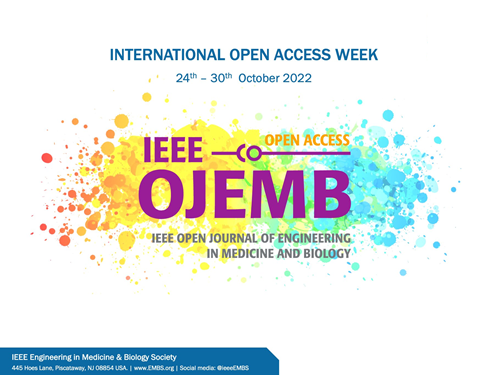基于小规模随访数据预测食管癌患者接受免疫疗法后的生存期
IF 2.9
Q3 ENGINEERING, BIOMEDICAL
IEEE Open Journal of Engineering in Medicine and Biology
Pub Date : 2024-09-02
DOI:10.1109/OJEMB.2024.3452983
引用次数: 0
摘要
食管癌(EC)是一个严重的健康问题,尤其是在老年人中,需要采取有效的治疗策略。虽然免疫疗法有望激活针对肿瘤的免疫反应,但其对食管癌患者的具体影响和相关反应仍不确定。准确的预后预测对于指导适当的干预措施至关重要。本研究基于厦门大学附属第一医院的数据(2017年1月至2021年5月),重点研究了113例接受免疫治疗的EC患者。研究的主要目的是阐明免疫疗法在心肌梗死治疗中的有效性,并在样本量较小的情况下,介绍一种用于预测接受免疫疗法的心肌梗死患者生存率的堆叠集合学习方法,以解决为医护人员的临床决策提供支持的当务之急。我们的方法包含五个子学习器和一个元学习器。利用训练数据集的最佳特征,该方法在预测三年生存状况方面取得了令人信服的准确率(89.13%)和AUC(88.83%),超过了传统技术。事实证明,该模型能有效指导临床决策,尤其是在随访数据规模较小的情况下。本文章由计算机程序翻译,如有差异,请以英文原文为准。
Prediction of Survival in Patients With Esophageal Cancer After Immunotherapy Based on Small-Size Follow-Up Data
Esophageal cancer (EC) poses a significant health concern, particularly among the elderly, warranting effective treatment strategies. While immunotherapy holds promise in activating the immune response against tumors, its specific impact and associated reactions in EC patients remain uncertain. Precise prognosis prediction becomes crucial for guiding appropriate interventions. This study, based on data from the First Affiliated Hospital of Xiamen University (January 2017 to May 2021), focuses on 113 EC patients undergoing immunotherapy. The primary objectives are to elucidate the effectiveness of immunotherapy in EC treatment and to introduce a stacking ensemble learning method for predicting the survival of EC patients who have undergone immunotherapy, in the context of small sample sizes, addressing the imperative of supporting clinical decision-making for healthcare professionals. Our method incorporates five sub-learners and one meta-learner. Leveraging optimal features from the training dataset, this approach achieved compelling accuracy (89.13%) and AUC (88.83%) in predicting three-year survival status, surpassing conventional techniques. The model proves efficient in guiding clinical decisions, especially in scenarios with small-size follow-up data.
求助全文
通过发布文献求助,成功后即可免费获取论文全文。
去求助
来源期刊

IEEE Open Journal of Engineering in Medicine and Biology
ENGINEERING, BIOMEDICAL-
CiteScore
9.50
自引率
3.40%
发文量
20
审稿时长
10 weeks
期刊介绍:
The IEEE Open Journal of Engineering in Medicine and Biology (IEEE OJEMB) is dedicated to serving the community of innovators in medicine, technology, and the sciences, with the core goal of advancing the highest-quality interdisciplinary research between these disciplines. The journal firmly believes that the future of medicine depends on close collaboration between biology and technology, and that fostering interaction between these fields is an important way to advance key discoveries that can improve clinical care.IEEE OJEMB is a gold open access journal in which the authors retain the copyright to their papers and readers have free access to the full text and PDFs on the IEEE Xplore® Digital Library. However, authors are required to pay an article processing fee at the time their paper is accepted for publication, using to cover the cost of publication.
 求助内容:
求助内容: 应助结果提醒方式:
应助结果提醒方式:


